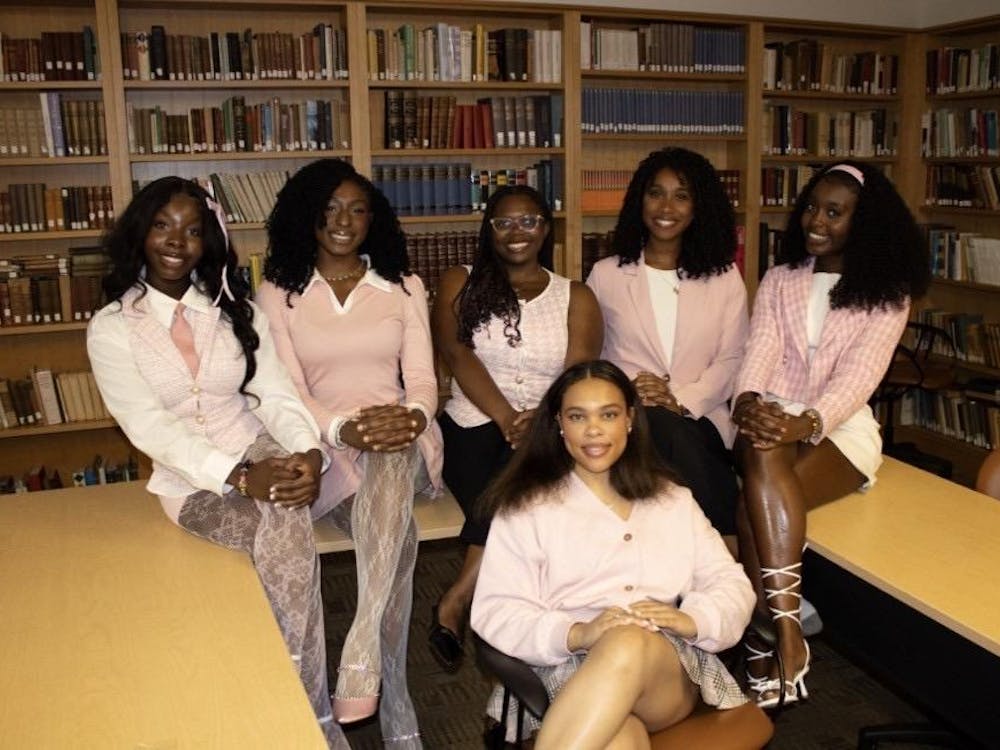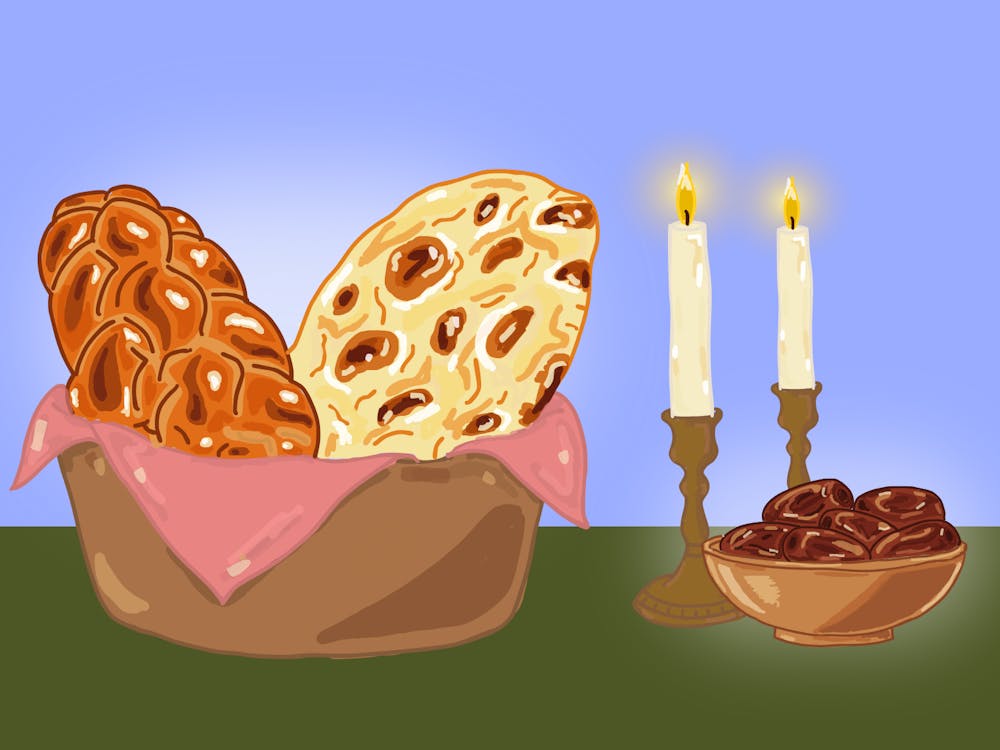"There are diversities of gifts, but the same Spirit. There are differences of ministries, but the same Lord. And there are diversities of activities, but it is the same God who works all in all."
- I Corinthians 12:4-6
It's about praise and worship. It's about scripture and song. It's about comfort and familiarity. And it's about God.
But it's not about being the same.
Of the 26 Christian-based Contracted Independent Organizations and the several other religious groups on Grounds, students can choose from among large groups and small groups, specific denominations and inter-denominational fellowships, and between a student-led or a minister-led organization. They also can choose a group that is predominantly white, black or Asian.
|
Among those Christian organizations that are made up mostly of minorities are Grace Christian Fellowship, Impact Movement, Chinese Christian Fellowship and Black Voices.
"If you're choosing from the selection of fellowships, you're looking for something that sets a group apart," said Chang Paik, president of the predominantly Asian GCF. "I think a lot of times it just comes down to your racial and ethnic background. People just tend to feel more comfortable with other people that they're familiar to or similar to."
Paik said the University's Asian community is "small enough that almost everyone knows each other, which makes it a little bit easier for us to reach out to" Asian students.
Paik estimated that GCF is about 80 percent Asian, and within that "predominantly Korean." One reason for GCF's racial makeup is that Korean members from Northern Virginia often hear about the fellowship in their hometown churches. They are familiar with the organization even before they come to the University, Paik said.
Within the University's ethnic religious groups, styles of worship also can be a factor in choosing between fellowships.
"There are so many different ways to do one thing," second-year Engineering student Tamika Lockhart said. "Different students have different preferences on the way that they feel comfortable praising God."
Lockhart is president of the University's newly formed chapter of Impact Movement, a national organization geared toward black students.
"There's a lot of different organizations and big Christian organizations on Grounds, but I saw that there was a lack of a big Christian organization where African- Americans felt really comfortable," Lockhart said.
Fourth-year Engineering student Brian Edmonds, an Impact executive board member, noticed that same need as a member of First Year Fellowship.
He found that getting fellow black students to attend meetings was difficult, partly because the praise and worship at First Year Fellowship "would be completely different from what you would hear coming out of an African-American church," Edmonds said.
"I was kind of able to get past that," he said. "But it's a much bigger barrier to some people when none of your friends are going, you're not used to the praise and worship, and you're not going to know anyone else there."
Impact exists under the umbrella of the national fellowship organization called Campus Crusade for Christ, which also has a University chapter. The idea behind having these two separate groups at the University is not to promote segregation between ministries, but to provide more options, said Kelly Scott, director of the University's Crusade chapter.
"It's going to open the door for more people to be able to find a place where they feel like they're going to grow in relationship to God and other students," Scott said.
A culture-sensitive Christian experience can contribute to a spiritual maturity and lead to greater acceptance of others, said I.J. Kim, campus minister for GCF. It also allows specific needs of a community to be addressed in a spiritual environment.
Kim added that the role of parents among Asian-American students, where the sense of authority or respect can be stronger than in other households, is one subject that Asian-American students can readily identify with.
"We can address those issues that many students face with scriptural understanding," Kim said.
Fellowship leaders and members said race does not have to be a requirement or a preventative when it comes to joining. Some students have found that a group's meeting time or worship style weighs more heavily in their decision than race.
Black Voices President Crystal Henderson, a fourth-year Education student, said she has seen diversity increase in her three years with the gospel choir.
"We do have members that are not black, that are of other races and ethnicities and they love it," Henderson said. "And I think that mainly they are in it also for the fellowship and being able to minister to others through music."
In GCF, fourth-year Engineering student Jylinda White found a place within the group as a black student. White has been a member and small group leader at GCF, where she said she was attracted by the service.
Now, as part of Impact's leadership, White said, "you may have a target group but you want to be sure that if others come they feel the same warmth."
To that effect, Impact has a greeting team that ushers students into 140 Clark Hall for Friday night fellowship, where hanging photos of stars and a huge poster of a view of the earth from the moon seem befitting of the occasion to worship God.
Executive board members also go around to welcome all newcomers.
GCF uses greeters to help first years on move-in day to let students know about the fellowship. Paik sees that as an opportunity to reach out to non-Asian students on a "personal level."
He said increased diversity within GCF would add "different perspectives" to the group and would help them conceptualize a broader range of ways to serve the Charlottesville community.
But finding a balance between diversity within a group and wanting it to retain the racial and cultural dynamics that make it appealing can be tricky.
One solution is to coordinate get-togethers between various fellowship groups.
"It's logistically impossible to have those joint meetings every week," Kim said.
But when GCF pairs with Intervarsity Christian Fellowship for an annual joint event, "we really pack the Chemistry Auditorium and you a see a salad bowl of Christians," Kim said
Impact and Campus Crusade also plan to have a joint event every fifth meeting where "people will begin to see that it's not just separate ministries, but that it truly is the body of Christ," Edmonds said.
As with any Christian fellowship on Grounds, the main focus is to establish an environment where students feel comfortable and connected when they come together to focus on God.
"As a female, as a black female, as a student - my personal thing is I just want a relationship with God," Lockhart said. "I have one and it's growing and that has changed my life. As one of Impact's leaders, that's what I want to get across to other people"






